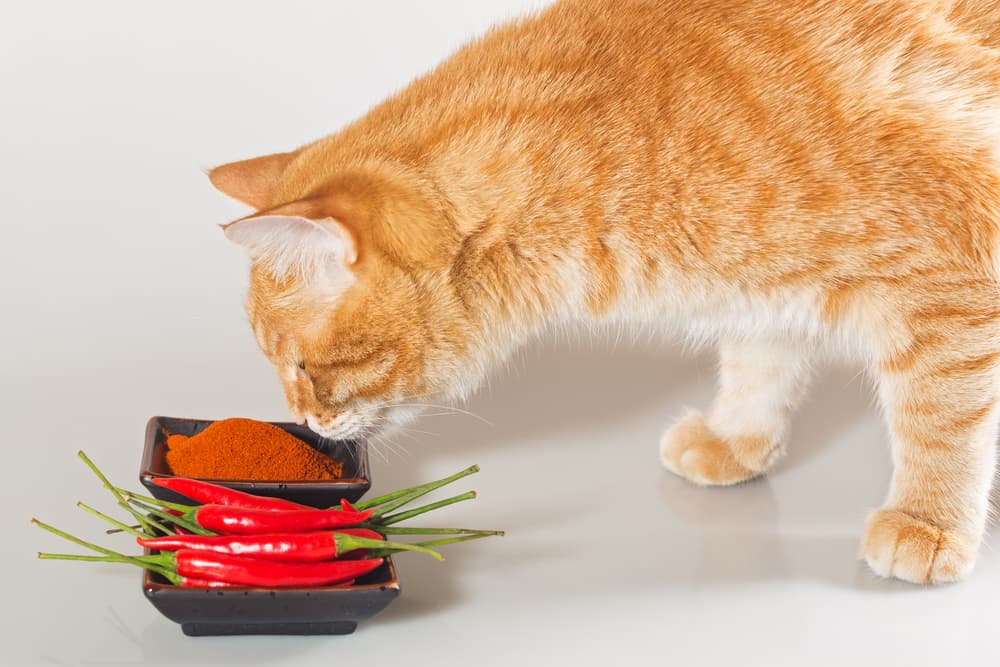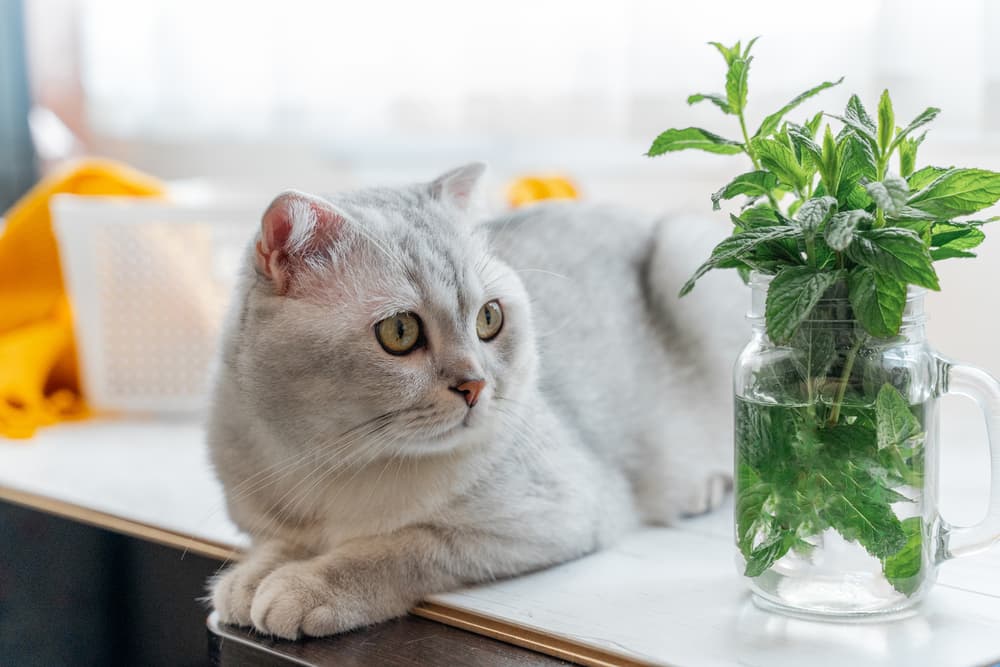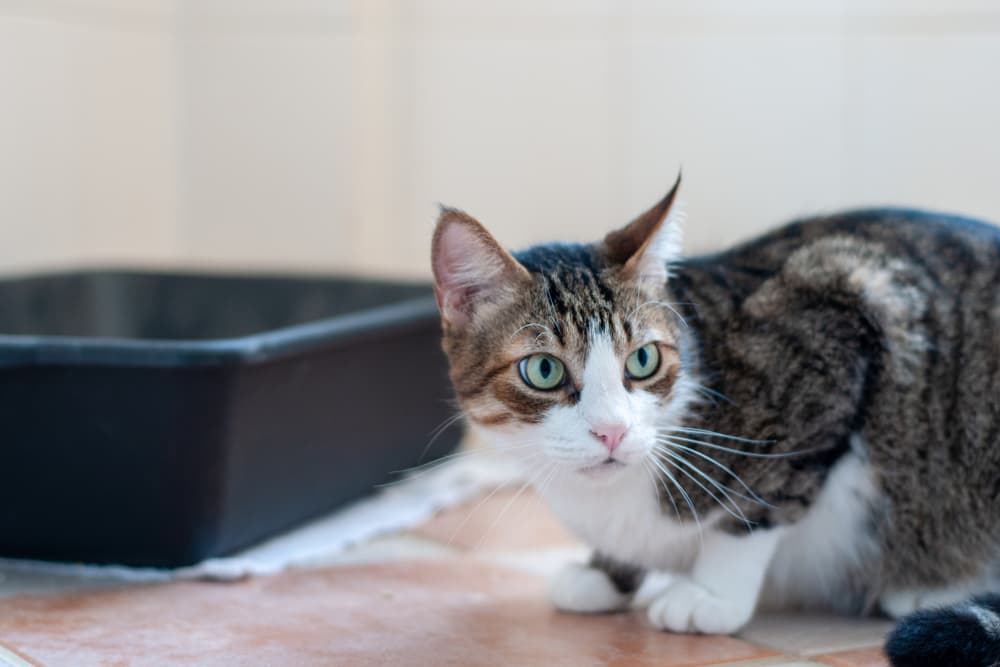What Smells Do Cats Hate?

Cats may not be blessed with the sophisticated sniffers of their canine counterparts, but they’re still far better equipped to experience the world through their noses than us humans. In fact, researchers estimate a cat’s sense of smell is about 14 times stronger than ours, thanks to about 200 million super-powered scent receptors (1, 2).
Some smells, like mice or catnip, attract cats, while others can be upsetting or even harmful. But both are evolutionary examples of how cats’ hypersensitive noses help them survive.
“Cats use their sense of smell to help them feel more secure in their environment, detect potential predators or danger, find food, locate mates, and distinguish familiar from unfamiliar cats,” says Dr. Marci Koski, a certified cat behavior and training consultant based in Vancouver, Washington.
Who knew there was so much to know about cat noses? But these aren’t just fascinating facts. Learning why a cat’s sense of smell is so powerful and what smells cats hate can actually help you be an even better pet parent.
Understanding a Cat’s Sense of Smell

“Cats’ noses developed over time to help them navigate their world and keep them safe,” says Dr. Lindsay K. Merkel, an associate professor of small animal internal medicine at the University of Minnesota College of Veterinary Medicine. Cats evolved behaviorally and developed their unique scent-processing anatomy in a way that was very different than humans, dogs, and other animals. Essentially, felines vacuum scents into their noses where specialized organs process them as either friend or foe (1).
“Most of the scents that are considered unpalatable or unfriendly to cats are considered so because they’re associated with danger,” says Merkel. In particular, volatile organic compounds (VOCs)—gases released into the air from a variety of products and processes—often serve as scent-based clues that tell cats to stay away from certain foods, substances, or plants (3, 4, 5).
While some of the things cats hate to smell make perfect sense (like another cat’s urine marking their favorite spot), others might come as a surprise.
What Smells Do Cats Hate?

Here are the top seven things cats hate to smell, along with scientific explanations about why they might make a big stink about them.
1. Essential oils

While the soothing scents of many essential oils like tea tree, lavender, and eucalyptus might be great for your self-care routine, kittens and cats may not share your enthusiasm (6). That’s because exposure to large amounts of essential oils can be distressing and even toxic for cats due to potentially hazardous VOCs. Cats’ aversion to these oils can quite literally save their lives, says Merkel.
According to the Pet Poison Helpline, it’s time to turn off your diffuser and move a cat into fresh air if you notice your pet showing any of these warning signs: a watery nose, drooling, trouble breathing, and coughing. (Pheromone diffusers, on the other hand, can help calm cats.)
2. Citrus fruit

Other smells that cats don’t like include the strong, acidic scent of citrus. That’s because oils from citrus fruits like oranges, lime, lemon, and grapefruit are toxic to them (7, 8, 9, 10), says Koski. As many gardeners can tell you, citrus peels are a tried-and-true natural cat deterrent often scattered around plants to keep kitties out (11, 12).
3. Hot peppers

Capsaicin—the special molecule that gives chili peppers their pungency and spiciness (13)—is also associated with potentially toxic VOCs, says Merkel.
As such, their scent can deter cats if there’s something you don’t want them to eat or an area you’d prefer they stay away from (like that houseplant potter they keep using as a restroom)! For this reason, capsaicin is often found in cat repellents (14, 15).
4. Herbs and plants

Carefully chosen greenery can also keep kitties away from certain areas, says Koski. In particular, cats hate the smell of rue, lavender, marigolds, pennyroyal, Coleus canina, and lemon thyme.
So if you have a problem with curious kitties or strays in your yard, consider planting these specimens throughout your garden or along the edges of flowerbeds to serve as a natural cat deterrent (11, 14).
5. Vinegar

“Most cats despise the scent of vinegar,” says Koski. “It’s usually not toxic and can be used safely for cleaning or to deter cats.” (14)
But pay attention to how your kitties respond to it. Sometimes, cleaning up cat urine with vinegar may actually compel a feline to urinate on top of the area again, presumably in an attempt to overpower the unwanted scent, she says.
6. Ground coffee

There’s a reason why you rarely have to worry about a kitten getting into your morning cup of joe. “Most cats do not enjoy the smell of coffee, which is a good thing because even just a small amount of caffeine can be toxic to cats,” says Koski. (16)
Some people use coffee grounds to keep cats away from gardens and plants (14). But since cats could accidentally ingest coffee grounds on their paws or fur when grooming, other options would be safer, she notes.
7. A dirty litter box

Because cats are solitary beings who come together only to mate and raise young, their urine has scent markers or pheromones. These allow them to mark their territory and keep others from encroaching on their personal space, explains Merkel. “This can be good in the wild, but bad if your cat decides he or she needs to do this in your Manhattan loft,” she says.
If your cat is sensitive to the scent of their own urine, or you have multiple cats and not enough boxes, your cat could start urinating in places like your bed or briefcase instead. Make sure you have one more litter box than the number of cats in the household (i.e., three litter boxes for two cats) and clean them daily, suggests Koski.
Scents Cats Hate: Why It Matters to You

Knowing which scents cats hate doesn’t just help you get to know your cat better. Pet parents can use the list above to keep cats safe, deter them from chewing on things they shouldn’t be chewing on, and avoid behavioral problems in the future. You can also use smells strategically to keep cats out of feline-free spaces.
“The most important thing is to make sure that any scented product you’re using around cats is not toxic or harmful,” says Koski. Since essential oils in particular can be dangerous for cats when inhaled or eaten, don’t use them in your home unless you’re sure they’re safe for your pets. An easy rule to follow: “When in doubt, don’t use it!”









